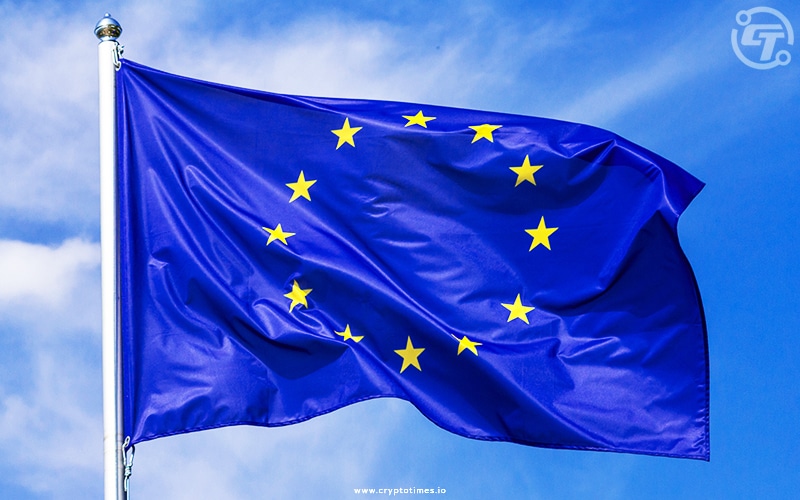On Thursday, European Lawmakers votes on the Markets in Crypto-assets (MiCA) with the majority. With this, the EU would be the first to introduce rules to regulate the cryptocurrency industry as a whole which will be effective in 2024.
For the new cryptocurrency regulation policy, MiCA, EU lawmakers voted 517 in favor, 38 against the licensing policy, and 28 abstained.
Majority of the EU lawmakers supported MiCA, the new cryptocurrency regulation. In the assembly 517 voted in favour of the policy while 38 were against it and only 28 abstained from voting.
Similarly, the Transfer of Fund Regulation was approved by the EU Parliament, with 529 voting in favor, 14 failing to vote, and only 29 opposing votes. 529 people voted in favor of the legislation requiring firms to verify the identities of their clients before transferring any of their money in order to prevent money laundering.
Since the EU decided to regulate cryptocurrencies and stablecoins in July 2022, the MiCA struggle has finally come to a close. Stablecoin issuers must keep enough liquid reserves, according to MICA, which is regarded as the first significant regulatory framework for the cryptocurrency business.
The ‘travel rule’, in existence in the traditional financial world, will also cover cryptocurrency transactions. Additionally, it is going to apply to payments from cryptocurrency wallet addresses to private users above €1,000 (about $1,100), excluding person-to-person transactions.
As per the Bloomberg report, Mairead McGuinness, the Commissioner of European Financial Service highlighted that “she expects the legislation to come into force in July after it’s formally approved by the bloc’s 27 member states.”
McGuinness referred to the vote for cryptocurrency regulations as a “world first” on his Twitter. According to her, the rule will come into force in the crypto industry from next year. Also added, “We’re protecting consumers and safeguarding financial stability and market integrity.”
“This puts the EU at the forefront of the token economy with 10 000 different crypto assets,” said lawmaker Stefan Berger, who led the MEP for the Markets in Cryptoassets (MiCA), in a statement published on the European Parliament’s official News site. He further added, “consumers will be protected against deception and fraud, and the sector that was damaged by the FTX collapse can regain trust.”






